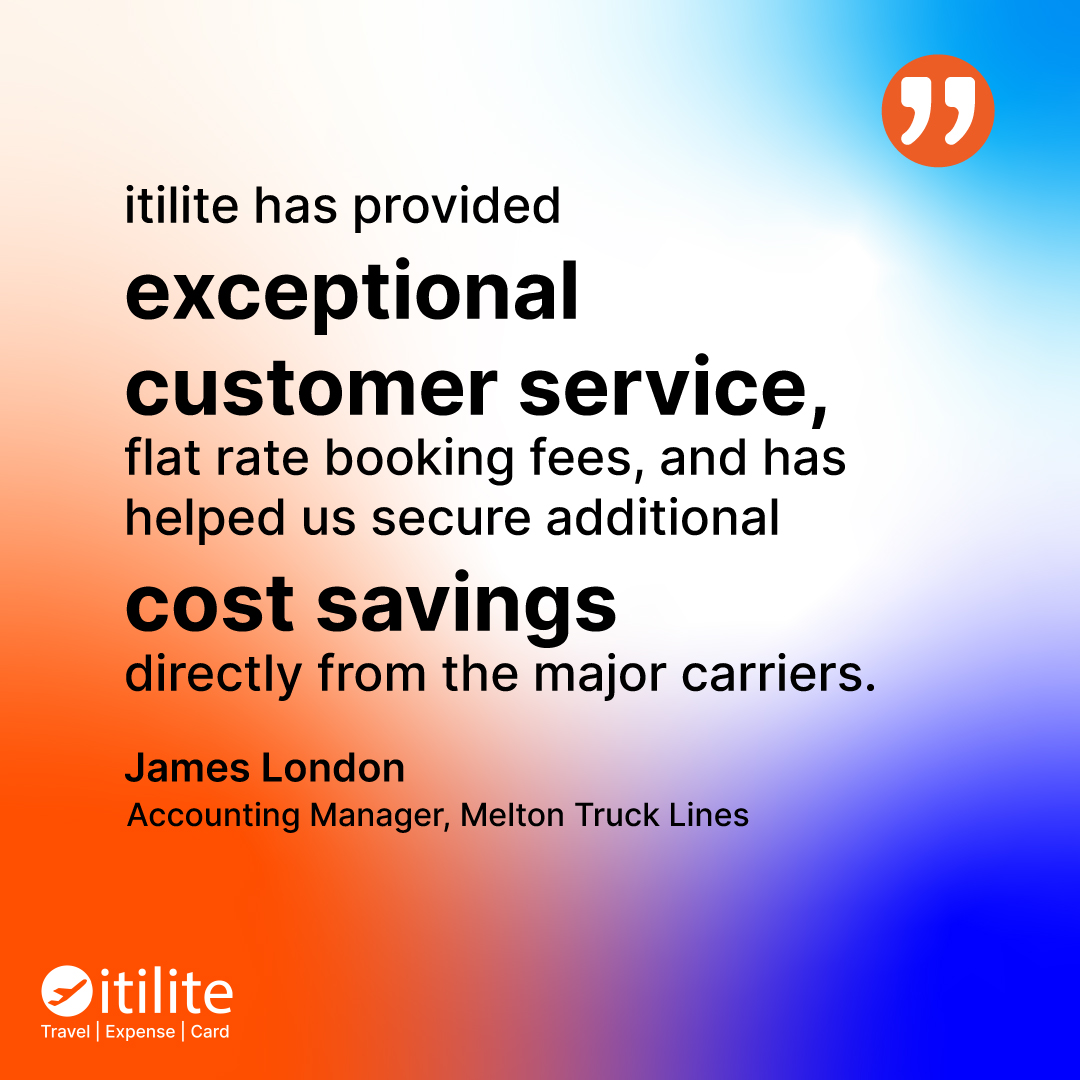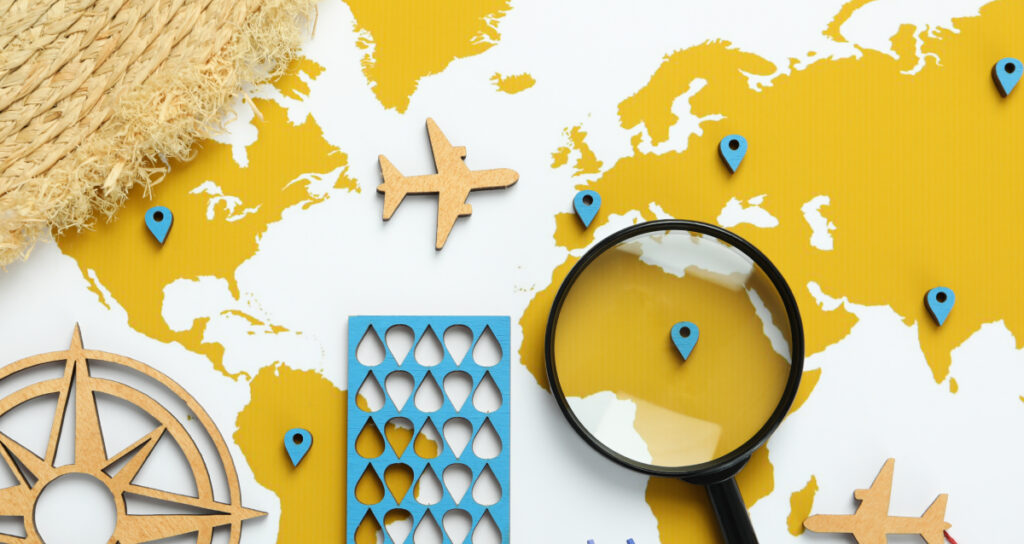
In today’s fast-moving world of financial technology, where new ideas and information come together, keeping private data safe is a big deal. For fintech companies – those that work with money and technology – protecting sensitive info isn’t just about their office. It gets even more crucial when they’re traveling for business. They deal with lots of secret financial data, so every trip is a chance for good things and a risk.
In this industry, rules are strict, and competition is fierce. If there’s a breach in data travel data security for fintech – like if someone gets unauthorized access to private info – it’s not just about losing money. It’s about losing people’s trust, getting in trouble with the regulations, and damaging the company’s reputation. Thus, ensuring data privacy during travel is necessary and a foundational pillar of trust-building and operational continuity.
This blog will explore the importance of data privacy and streamlined travel management for fintech companies.
Importance of Data Privacy in Travel Management for Fintech
Financial Confidentiality
Fintech companies deal with highly sensitive financial data, including customer information, payment details, and transaction histories. If this data gets into the wrong hands, it could lead to people stealing money or pretending to be you.
Trust and Reputation
Maintaining data privacy builds trust among customers and partners. Fintech firms rely heavily on trust as they disrupt traditional financial services. Any breach can result in a loss of trust, impacting customer loyalty and market credibility.
Meeting Legal Requirements
Fintech companies must follow strict rules and laws about protecting private information. These rules, like GDPR and CCPA, are guidelines to ensure your data stays safe. If a company doesn’t follow these rules, they could get into serious trouble, facing penalties and fines.
Business Continuity
Security breaches during travel can disrupt operations and cause financial problems for the company and its customers. Ensuring data privacy during travel is essential for uninterrupted business continuity.
8 Ways in Which Data Can Be Exposed and How to Prevent It
1. Unsecured Wi-Fi Networks
- Public Wi-Fi Risks: When traveling, employees often connect to public Wi-Fi networks in airports, hotels, or cafes. These networks lack encryption, making data transmitted over them susceptible to interception by hackers.
- Mitigation: During travel management for FinTech, educating employees to use virtual private networks (VPNs) or secure hotspots to encrypt their internet connections can significantly reduce the risk of data interception.
2. Physical Theft or Loss of Devices
- Device Security: The loss or theft of laptops, smartphones, or tablets containing sensitive financial or customer data poses a significant threat. Stolen devices can lead to data breaches and compromise critical information.
- Precautions: Crucial measures include encouraging employees to use strong passwords, enabling device encryption, and implementing remote wipe capabilities in case of theft or loss.
3. Inadvertent Sharing of Confidential Data
- Social Engineering Attacks: Employees might unintentionally disclose sensitive information in conversations or emails while discussing work in public spaces, such as airports or restaurants.
- Training and Awareness: During travel management for FinTech, providing comprehensive training on social engineering tactics and emphasizing the importance of discussing sensitive matters in secure environments can mitigate this risk.
4. Data Storage and Access
- Cloud Storage Risks: Uploading sensitive files to cloud storage services without proper encryption or travel data security for fintech measures can expose data to unauthorized access.
- Security Protocols: Enforcing strict policies on data storage, including using encrypted storage solutions and limiting access only to authorized personnel, helps mitigate this risk.
5. Cross-Border Data Compliance
- International Travel Concerns: Traveling across borders introduces complexities regarding data compliance and privacy laws, as regulations vary between countries.
- Legal Expertise: Having legal experts or advisors who understand the intricacies of data privacy laws in different jurisdictions can ensure compliance and prevent legal issues.
6. Insider Threats
- Malicious Intent or Carelessness: Employees with access to sensitive data might intentionally misuse it or inadvertently expose it due to negligence.
- Access Control and Monitoring: Implementing strict access controls, continuous monitoring, and regular audits help detect and prevent potential insider threats.
7. Social Media Oversharing
- Unintended Exposure: Employees sharing travel details on social media platforms might unintentionally reveal sensitive information, such as itineraries, company-related activities, or locations.
- Social Media Policies: Establishing clear guidelines on social media usage during business travel can minimize the risk of inadvertently exposing confidential details.
8. Phishing and Malware Attacks
- Targeted Attacks: Travelers might become targets of phishing emails or malware disguised as legitimate travel-related communications, compromising their devices and data.
- Cybersecurity Training: Conducting regular training sessions on identifying phishing attempts and installing robust anti-malware software can help prevent such attacks.
How Travel Management Software Can Help Improve Data Security During Business Travel?
Travel management software can significantly contribute to maintaining data privacy during business travel in several ways:
1. Centralized Booking and Information Management
- Secure Booking Platforms: Using travel management software with built-in security measures ensures that employees book accommodations, flights, and transport through encrypted platforms, reducing the risk of data interception.
- Centralized Data Storage: Storing travel itineraries and sensitive employee information within a secure, centralized system helps prevent data fragmentation and ensures controlled access to travel-related data.
2. Compliance with Data Privacy Regulations
- Integrated Compliance Checks: Travel management for FinTech software can integrate compliance checks, ensuring that booked accommodations or services adhere to data privacy regulations in different regions or countries, minimizing legal risks.
3. Secure Payment and Expense Management
- Encrypted Payment Gateways: Utilizing secure payment gateways within the travel management software ensures that financial transactions for bookings remain encrypted and protected from potential breaches.
- Expense Tracking and Compliance: The software can facilitate secure expense reporting, ensuring that sensitive financial data related to business travel expenses is handled and stored securely, compliant with data privacy standards.
4. Policy Enforcement and Employee Training
- Automated Policy Compliance: The software can enforce company travel policies related to data security, ensuring that employees adhere to specific guidelines during booking and travel.
- Training Integration: Integration of training modules within the software can educate employees about data privacy best practices while traveling, promoting awareness and compliance.
5. Real-time Monitoring and Alerts
- Travel Alerts: Providing real-time alerts to travelers about potential security risks, such as travel advisories or cybersecurity threats specific to their location, allows proactive measures to safeguard data and personal safety.
- Security Notifications: Alerts regarding potential breaches or suspicious activities related to travel bookings or transactions help in immediate response and mitigation.
6. Integration with Security Tools
- VPN Integration: Some travel management software might offer built-in or integrated VPN services, allowing employees to access company networks while traveling securely.
- Endpoint Security Integration: Integration with endpoint security solutions enables continuous monitoring of devices used for travel bookings, ensuring they meet security standards.
7. Data Encryption and Access Controls
- Encrypted Communication: The software might offer encrypted communication channels for discussions related to travel plans or changes, preventing unauthorized access to sensitive information.
- Role-based Access: Implementing access controls within the software ensures that only authorized personnel can view or modify sensitive travel-related data, reducing the risk of data exposure.
8. Reporting and Audit Trail
- Detailed Reporting: Generating comprehensive reports within the software provides insights into travel patterns, expenses, and compliance with data privacy policies, aiding in audits and improvements.
- Audit Trail: Maintaining an audit trail of all travel-related activities and transactions ensures transparency and accountability, which is essential for ensuring data privacy compliance.
Opt for ITILITE to Streamline Travel Management for FinTech
Looking to take your fintech company’s travel management to the next level? Meet ITILITE – your dedicated partner in simplifying and securing your travel needs.
At ITILITE, safeguarding your sensitive data is our top priority. We’re constantly enhancing our security measures to ensure your information remains protected. Our commitment to data privacy goes beyond the basics; we’re always staying ahead by adopting and surpassing industry standards.
What sets us apart?
It’s our comprehensive security program. With role-based access, we ensure that only those who truly need access get it – following the principle of least privilege. Our two-factor authentication and detailed audit trails guarantee strict access monitoring, so you’re always in control.
Ready to explore hassle-free, secure travel management? Book a demo with us today
















